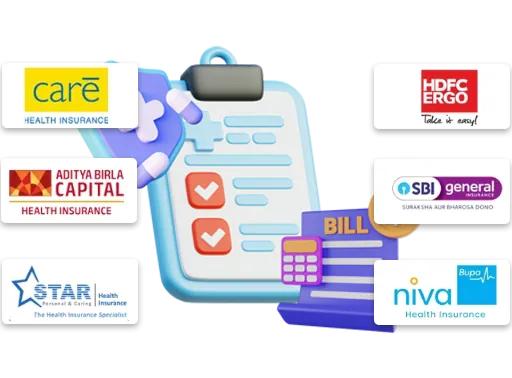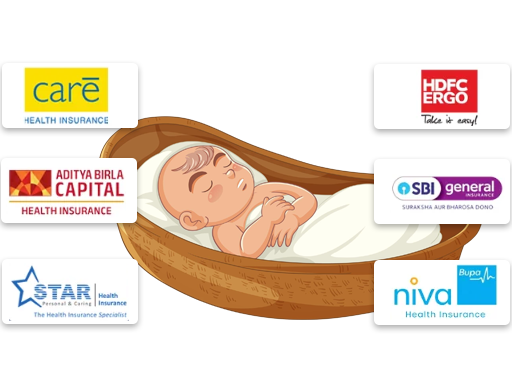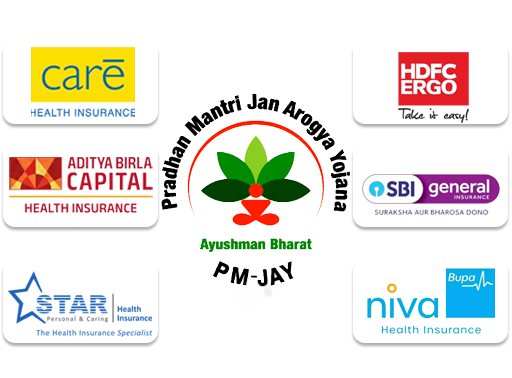- Short-term Benefits
- Long-term Benefits
- Comparison Table

Bindiya is a seasoned content writer specializing in keeping readers acquainted with the insurance industry, term insurance developments, and life insurance sector shifts. With an experience of 3 years in insurance, Bindiya ensures that her readers stay well informed with the insurance developments and factually correct information.
Reviewed By:

Naval Goel, the founder of PolicyX is a well-recognised name in the Indian insurance and finance industry. His global overview has revolutionised the way insurance is perceived and bought by commoners in India.
Updated on Aug 07, 2023 4 min read




Difference Between Short Term and Long Term Health Insurance
When buying a health insurance plan, customers have a dilemma about whether to go for a long-term or short-term insurance plan. However, the choice of the plan depends upon the individual’s situation, requirements and goals to pick a suitable insurance plan, so it is recommended to understand your insurance needs first. As healthcare costs are soaring, it is best to have the right insurance backup to steer away from using up your savings during medical emergencies.
Long- Term and Short-term health Insurance policies are two types of health insurance coverage. They both differ in their tenure, premium, and renewal. Both are suitable in different scenarios. So, don’t put it off anymore and head over the following information, to get a comprehensive health insurance policy.
What is Short-Term Health Insurance?
A short term health insurance in India is a kind of medical insurance policy that offers coverage for a limited period, generally, they have a validity period of 6 months to 12 months. Good short-term health insurance plans offer non-permanent coverage for any medical emergencies or requirements such as pre and post-hospitalisation, ambulance charges, organ donor expenses and more. And foremost, they can be more affordable as compared to long-term since the premiums are on the lower side. Let’s take a look at the features and benefits of short-term health insurance plans and who should buy them.
Benefits of Short-Term Medical Plans
- Short-term medical insurance offers tax benefits under Section 80D of the Income Tax Act, of 1961.
- Short-term policies last for a smaller period such as 12 months or lower.
- Short-term plans need to be renewed frequently.
- The premiums under short-term plans are very cost-effective.
- You can switch your short-term plan to a different insurance company at the time of your health insurance renewal.
- Due to their non-permanent nature, these plans generally do not cover maternity, critical illness, or pre-existing diseases.
- They also provide extra perks such as free health checkups for not making any claims in the policy tenure.
Who Should Buy a Short-Term Health Policy?
Short-term medical insurance plans are the best option for people who are unsure about buying a long-term policy. Short-term insurance will be highly useful for the following category of people:
- International students studying or traveling in foreign countries as it secures Non-Resident Indians (NRIs) from visiting the country for a brief duration.
- For people who switch their jobs and they require short-term health coverage while switching jobs or insurance providers, short-term plans are a suitable option.
- As most countries have mandatory insurance requirements for visitors so anyone traveling abroad for business or vacations needs short-term insurance.
Disadvantages of Short-Term Medical Insurance
- Short-term plans do not provide coverage for pre-existing conditions.
- You cannot benefit from the NCB in short-term plans.
- Short-term plans generally have lesser coverage for diseases and medical expenses compared to long-term plans.
- They need frequent renewal, this may need a little more attention than long-term plans.
What is Long Term Medical Insurance?
Long-term health insurance is a health insurance plan with a tenure of around 2 to 3 years or more depending on the insurer. Because of its permanent nature, policyholders can even get coverage for pre-existing diseases (PED). However, for the plan to cover pre-existing diseases, one would have to complete the waiting period specified under the plan. You can also get additional coverage for daycare treatments, comprehensive insurance plans where everything lies under an umbrella which isn’t possible with short-term plans.
Benefits of Long-Term Health Plans
- Long-term health insurance plan covers pre-existing diseases so that you can enjoy insurance coverage for a longer period in the event of such a prolonged medical treatment.
- No need to renew the policy every year so you can stop worrying about frequent policy renewal of your health plan.
- The long-term policy also covers alternative treatments such as AYUSH.
- Long-term healthcare insurance gives the policyholder access to add-on benefits like critical illness coverage, maternity and newborn cover, etc. along with wellness programs, They can even get the benefit of advanced treatment.
- Protection from premium variations, when the health insurance premium rises during the tenure of your health insurance plan, you will continue to remain unaffected by it.
Disadvantages of Long-Term Health Insurance Plans
- It could be difficult to make changes to long-term plans once they are bought.
- People may not be inclined towards long-term plans, in case health insurance premiums need to be paid in a lump sum, so the cost of a long-term plan will be much higher.
- In the market there are very few senior and super-senior citizens with affordable long-term plans.
Who Should Buy a Long-Term Health Policy?
With many advantages, long-term policies are best suited for people who have stable jobs and are looking for comprehensive health coverage for themselves as well as for their families. A long-term health policy protects the policyholders against any unexpected illnesses or accidents. The following are the category of people who should look into getting a long-term policy:
- A person who needs to be prepared for any medical emergencies should aim to have one long-term health policy.
- An individual who does not want to renew their policy frequently should opt for a long-term insurance plan to avoid the pain of renewing the policy frequently.
- A person looking to get medical insurance at a moderate rate should go for a long-term plan as the premiums for these plans are often lesser than short-term plans.
- Young people should especially go for long-term health plans as they can benefit from getting a lower premium for their long-term plan, as compared to the elderly who has to pay higher premiums.
Comparison Table
| Factors | Short-Term Health Insurance | Long-Term Health Insurance |
| Premium Amount | The premium amount is lower if compared to long-term healthcare insurance. | The premium amount is slightly higher if compared to short-term medical insurance. |
| Policy Tenor | 6 to 12 Months | 2 to 3 Years |
| Add-On Covers | No add-ons are available in short-term medical insurance. | Many add-on covers are available with long-term medical plans. |
| Renewability | Short term health plans need to be renewed frequently. | Long term health policy doesn’t require frequent renewal. |
| Pre-Existing Illnesses | Pre-existing ailments are not covered. | Pre-existing ailments are covered and they have a fixed waiting period. |
| Suitability | Short term health plans are suitable for: NRIs or international students. Individuals who are switching jobs. People switching between insurance companies. | Long-term healthcare insurance is suitable for: Individuals looking for long-term coverage. Policyholders who want to secure the healthcare expenses of their family members. Individuals who want to enjoy extensive coverage. |
| Downside | Compared to long-term healthcare insurance, the overall premium paid year on year is higher. Can not customize the policy once bought. Requires frequent renewal, such as yearly. | Porting the insurance policy to a new insurance company isn’t easy because of the longer policy tenure. Customer has to pay a higher premium amount at once. |
Consult for Personalized Insurance Advice

But how does it work?
Schedule a call with India’s number 1 trusted advisor with a 4.5+ rating on Google. We are not your average insurance agents. Our advisors are experts in their insurance knowledge and will give you the right information at the right time. The service is free of cost! Don’t worry, we won’t spam as we value your time.
Health Insurer Network Hospitals
Long-Term vs Short-Term Health Insurance: FAQs
1. What is the tenure of a long-term health insurance policy?
Generally, the tenure of a long-term health insurance policy is 2-3 years.
2. What is the tenure of a Short-term health insurance policy?
The tenure of a short-term health insurance policy is 6-12 months.
3. Does short-term plans cover pre-existing diseases?
No, short-term plans do not cover pre-existing diseases.
4. Does the long-term plan cover family members?
Yes, generally long-term plans have the family floater option, embedded in their plans.
5. Which of the following is a more cost-effective long-term or short-term health insurance plan?
Long-term health insurance plans have lower premiums as compared to short-term plans, hence they are easier on the pocket.
Health Insurance Companies
Know More About Health Insurance Companies
Share your Valuable Feedback
4.4
Rated by 2627 customers
Was the Information Helpful?
Select Your Rating
We would like to hear from you
Let us know about your experience or any feedback that might help us serve you better in future.


Written By: Bindiya Sinha
Bindiya is a seasoned content writer specializing in keeping readers acquainted with the insurance industry, term insurance developments, and life insurance sector shifts. With an experience of 3 years in insurance, Bindiya ensures that her readers stay well informed with the insurance developments and factually correct information.






 Reviewed By: Anchita Bhattacharyya
Reviewed By: Anchita Bhattacharyya

















Do you have any thoughts you’d like to share?